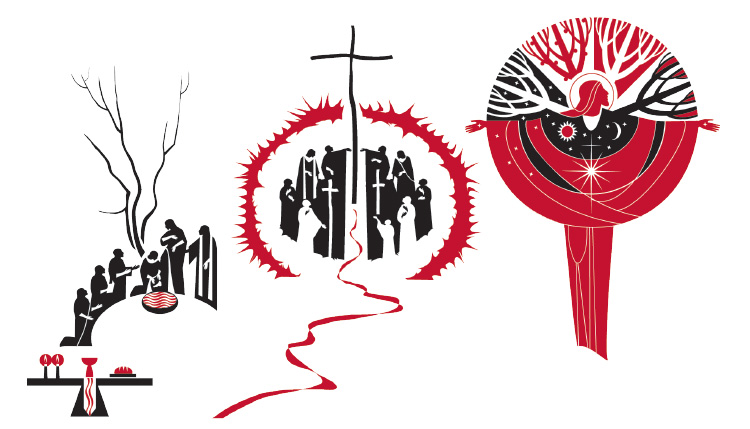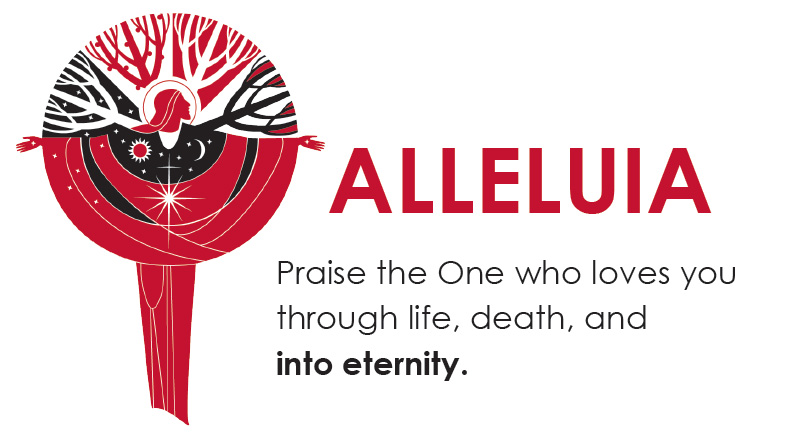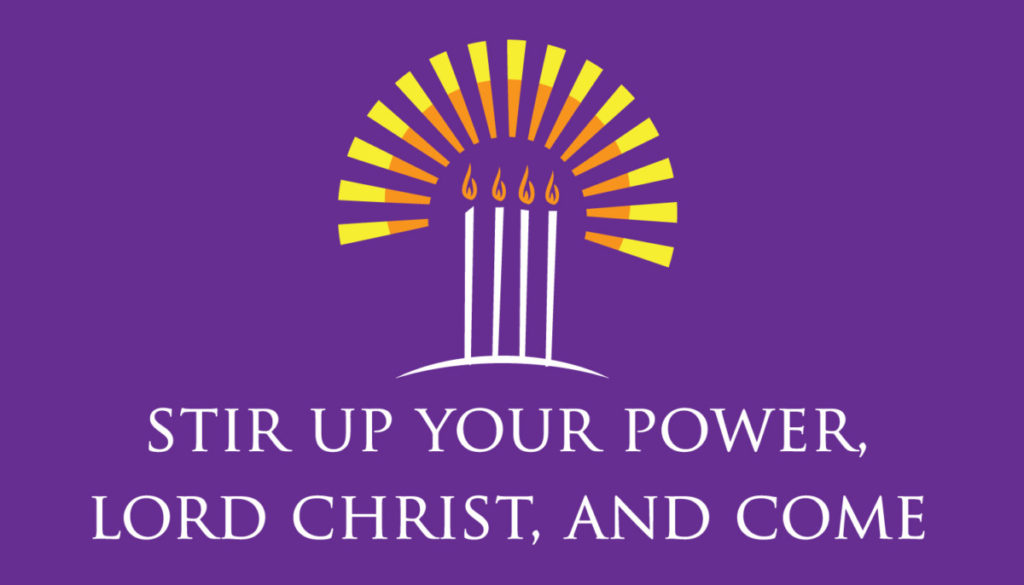Here is Bishop Dee Pederson’s message as we live into Holy Week and respond to God’s call as an Easter church.

Everyone is eager to tell the story again and join in the proclamation: Christ is risen! Christ is risen indeed! Alleluia!
The story of Good Friday is the part of the Jesus story that is the most difficult to tell or explain to children. Sunday school teachers, parents, and pastors know the experience well. We try to protect our kids from the horrors of the story this week, but finally there is no way to avoid it. We have to say Jesus suffered and died. And with the words barely out of our mouths, we are met by confused faces, who innocently ask, “Why did Jesus have to die?”
If we are honest, we struggle with the realities of the story of Holy Week, too. After all, Paul wrote to the Corinthians about the foolishness of the cross. We not only have questions about the suffering of Jesus, but also questions about our own sufferings and those of the world. And this is a time when there is such suffering in the lives of those we know and those around the world. Everyone these days carries the burdens and grief of so much pain: the continuing and long-term effects of the pandemic, the invasion of Ukraine, a struggling economy, our own exhaustion, our own sorrow. The questions linger. Why is there suffering like this? Where is God when I’m suffering, when you’re suffering, when thousands are suffering in so many places in our world? Are we comfortable asking hard questions in the church and in our prayer life? How do we accompany others in their times of need? How do we hear anew the promises of the living Word of this holy week?
Back in 2016, Professor Terry and Faith Fretheim wrote the Bible Study series for (then) Lutheran Woman Today titled, “Hope in God in Times of Suffering: Making Sense of Suffering.” In that study, they opened-up a wealth of insights from Scripture and from life, without attempting to do theodicy or pretend to explain away our questions with easy answers. Maybe some of you still have those copies of the WELCA magazine! Sadly, Dr. Fretheim passed away in November 2020. I have found myself returning to their Bible study a lot this spring as I have been thinking about our rostered leaders, the people of our congregations, this synod, and our world.
In the Bible study, Fretheims reminded the reader that people use the term “suffering” in various ways, and that it’s important to slow down and think about how we speak about suffering in ways that are neither true nor helpful. We’ve all heard people say things like: all suffering is the will of God, no suffering is the will of God, all suffering is due to sin, suffering can be avoided if you just have enough faith, all suffering is bad and is to be avoided at all costs, or that suffering is due to God’s absence. Those are a lot of unhelpful generalizations, and each of us can name real-life examples that refute every one of them. Many insensitive remarks, especially by Christian people, leave what Fretheims called “church-caused scar tissue”: they are comments that cause people to turn away from the church and from God because we turn God’s Good News into Bad News. And it does not have to be that way. As followers of Jesus, you and I can speak and live a different message!
Fretheims point out that there is not one explanation of suffering that applies to all situations. I find it important and helpful to slow down and think about these when I’m going through challenging times.
- There is suffering that comes to us because creation has certain results built into it, and because human beings are fragile and mortal.
- There is suffering that comes to us because of sin – because of what other people do (intentionally or unintentionally) or because of our own actions – (intentional or unintentional).
- Sometimes suffering results from the collective and tragic effect of sin against entire communities and nations.
- Sometimes suffering happens because we intentionally follow in the way God wants us to live for the sake of others.
We may not be able to explain suffering, but when we experience it, it may help to stop and think about these questions that can have an impact on others and their relationship to God and the church. What we say matters. And so, our words and our witness can send people running away…. or bless them with the grace, mercy, compassion, and love of Jesus Christ.
When Jesus walked on the earth, he did not go around striking people down with sickness or death. This is not what God wants for us. Jesus welcomed, healed, and forgave – so that all people might have full and abundant lives. The cross of Good Friday was the way God chose to be present in the world. Writing during that time of world turmoil in the 1940s, Dietrich Bonhoeffer said, “Only the suffering God can help.” [1] And that is what Jesus did, sharing your suffering, saying, “I love you so much that I will suffer and die for you. I love you so much that I will not stay dead!” As Peter’s testimony declared, “Death could not hold him.” (Acts 2:24)
The message of this week is not so much a message to explain, as it is to live. By faith. Bonhoeffer wrote about learning to have faith while “living unreservedly in life’s duties, problems, successes and failures, experiences and perplexities. In so doing we throw ourselves completely into the arms of God, taking seriously, not our own sufferings, but those of God in the world – watching with Christ in Gethsemane.” [2]
The stories of this week give us a powerful word to share: If you want to know the heart of God, look to Jesus on the cross, because there you see that God knows what it is to be betrayed, to suffer, and to approach our final hours. “Surely he has borne our griefs and carried our sorrows.” (Isaiah 53:4). More than this. God defeated the power of sin, death, and the devil. Jesus lives and comes still to give forgiveness and new life today, and life everlasting.
Easter has been known as the first day of God’s new creation, pointing to the new heavens and the new earth that God is creating (Isaiah 65:17), breaking into our world now. Every week we pray, “your will be done on earth as in heaven.” At Easter, we begin to imagine what God’s will looks like, as the writer of Revelation envisioned: “God will dwell with them…and will wipe away every tear from their eyes. Death will be no more; mourning and crying and pain will be no more, for the first things have passed away. And the one who was seated on the throne said, “See, I am making all things new.’” (Rev. 21:3-5). The story of the first Easter reveals God’s vision for a new and restored creation and for each of us as God’s precious children.
Today our triune God sends an Easter church into our world to:
- proclaim the word of Good News that puts sin to death, forgives, and brings life.
- gather in community to do whatever it means to “wash feet” and welcome to the table.
- watch and wait and pray with others when they are alone, struggling, or going through difficult times.
- speak truth against the forces of evil.
- live as the hands & feet of Jesus, bringing compassion, grace, mercy, forgiveness, restoration, and love.
Thanks to all of you for carrying the Good News of Jesus into this world that God loves so much. Preachers, thank you for the words of Life you proclaim; I pray God will fill you with health, inspiration, and strength for all you are called to do in these holy days.
As your congregation gathers in person or online for Easter this year, it will be a year like no other. God has led you through difficult times. You have had to silence Alleluias not only for a season, but for two years – not singing. But this year! This year, may you lift your Alleluias with strength and praise of the One who loves you through life and death and into eternity.
Christ is risen! Christ is risen indeed! Alleluia!

[1] Dietrich Bonhoeffer, Letters and Papers from Prison (New York: The Macmillan Company, 1967). 188.
[2] Bonhoeffer, Letters and Papers from Prison, 193.
Artwork © 2006 Evangelical Lutheran Church in America, admin. Augsburg Fortress.


